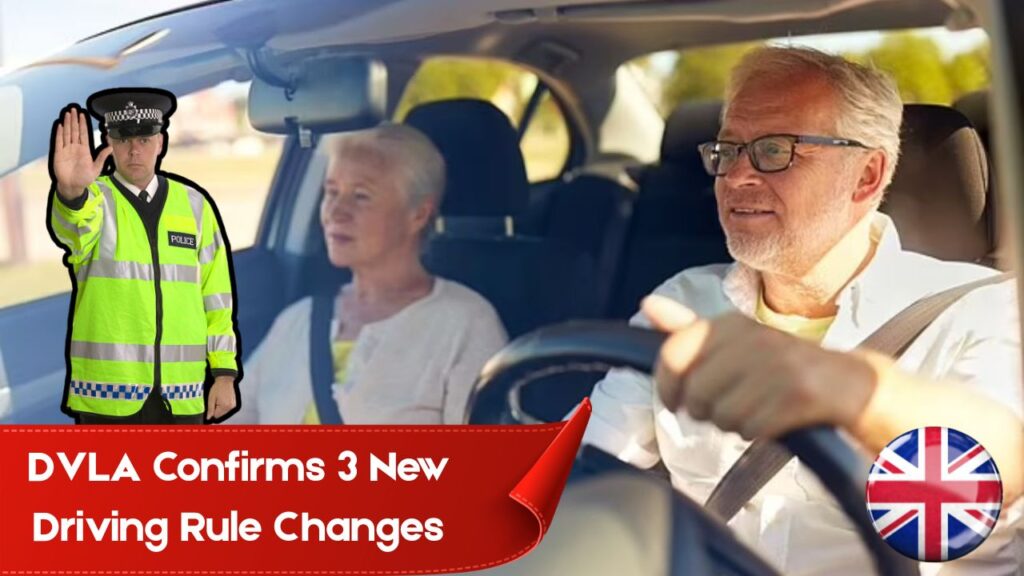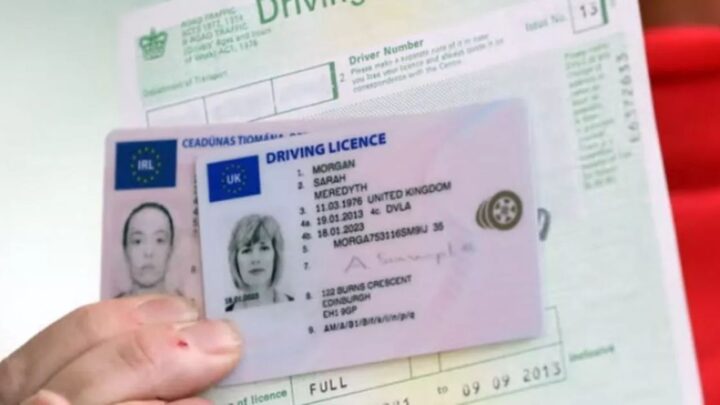The DVLA has announced new updates that will directly impact UK drivers starting from 20–25 October 2025. These changes aim to improve road safety, reduce emissions, and ensure compliance with the latest vehicle laws. From stricter emission checks to revised license renewal rules, motorists must understand these updates to avoid potential fines. Many drivers are unaware that the new DVLA penalties could apply immediately once these laws take effect, so it’s essential to stay informed before the enforcement date arrives.

New DVLA Driving Rules for UK Motorists
From October 2025, the DVLA driving regulations will include three major updates affecting both new and existing drivers. Firstly, stricter emission standards will be introduced for vehicles entering low-emission zones. Secondly, older drivers may need to undergo more frequent license renewals for health checks. Finally, updated penalties for unlicensed or uninsured driving will come into effect. These changes are part of the UK government’s safety initiative to modernize its transport system and ensure compliance with environmental and safety standards across the country.
Penalty Updates and Fine Adjustments
Under the DVLA new rules 2025, fines for common offenses will see a noticeable increase. Driving without insurance could now lead to fines of up to £1,500, while vehicles failing emission tests might attract on-the-spot penalties. The DVLA fine structure also introduces higher charges for missed MOT renewals and driving without a valid license. Motorists are encouraged to check their driving record regularly to avoid unexpected penalties. These new measures aim to promote responsible driving and reduce administrative backlogs by automating several verification processes.
License Renewal and Emission Test Changes
Another significant rule concerns driver’s license renewal and emissions compliance. Drivers above 70 years will be required to renew their licenses every 3 years instead of every 5. Additionally, all vehicles older than 10 years will need to pass an enhanced emission test before being allowed on the road. The DVLA will also begin sending digital reminders through the GOV.UK platform, replacing paper notifications. These changes align with the UK’s 2030 carbon targets and reflect an effort to streamline public service delivery for drivers nationwide.
| Rule Category | Effective Date | Main Change | Potential Fine |
|---|---|---|---|
| Emission Standards | 20 Oct 2025 | Stricter CO2 checks for vehicles | Up to £1,000 |
| License Renewal | 22 Oct 2025 | Senior drivers renew every 3 years | Up to £500 |
| Uninsured Driving | 23 Oct 2025 | Immediate penalties at roadside | Up to £1,500 |
| MOT Missed Renewal | 25 Oct 2025 | Increased late renewal penalty | Up to £1,200 |

How UK Drivers Can Stay Compliant
To avoid fines under the DVLA 2025 updates, drivers should stay proactive. Ensure your vehicle’s MOT is current, check insurance validity through the official portal, and keep your license information updated. The new online tools make it easier to manage renewals and view penalties digitally. If your vehicle is over a decade old, schedule an emission inspection early to prevent last-minute issues. The DVLA encourages all motorists to register for email reminders to stay informed of deadlines and policy changes as they roll out in late October 2025.
What is the start date for new DVLA rules?
The new DVLA rules will start taking effect from 20 October 2025.
Will the fines increase for uninsured driving?
Yes, fines for uninsured driving will rise to a maximum of £1,500.
Are elderly drivers affected by the new changes?
Yes, drivers above 70 will need to renew their license every 3 years.
How can I check my DVLA penalties online?
You can check penalties through the official GOV.UK DVLA portal using your driver number.



